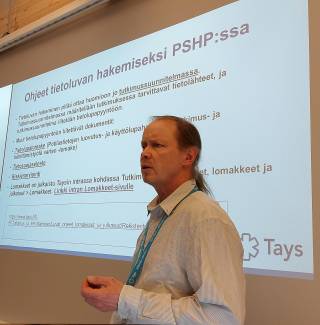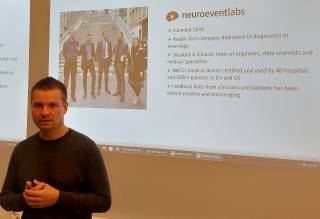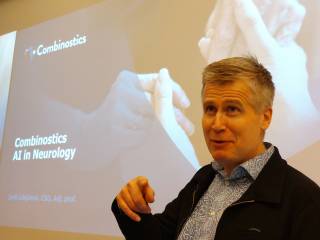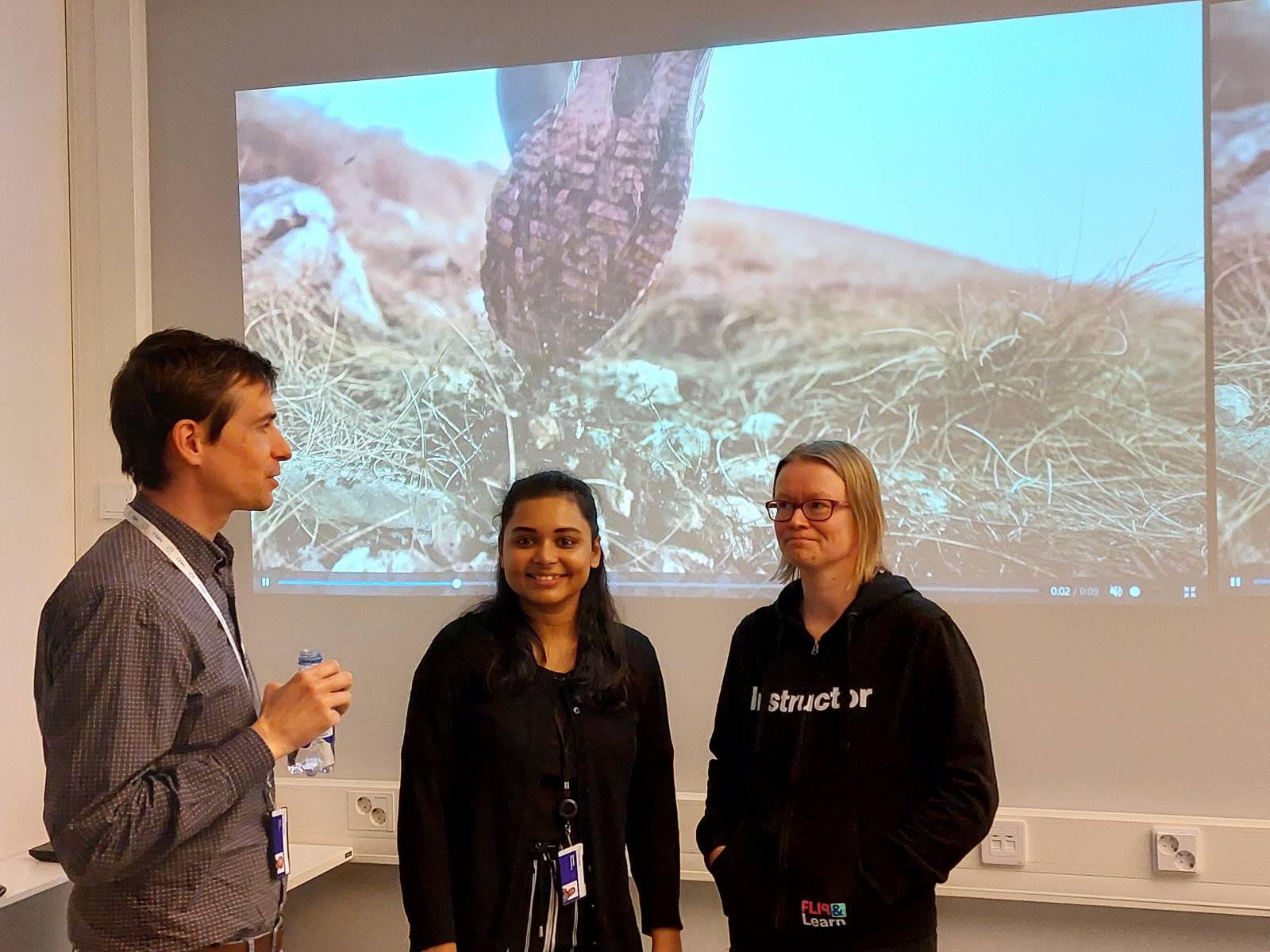REACT-EU funded AI Hub Tampere 2.0 has launched a new focus for 2022-2023: sustainability, green AI and health technology. Intelligent autonomous vehicles also remain in our core business.
This spring we arranged a new kind of hybrid workshop together with Health Hub and Business Tampere. It was in our shared interest to open and share knowledge on the legislative requirements affecting the use of health data. So on April 28th, Mika Grundström opened the event with a short introduction to AI Hub, after which Niko Lönn and Veli-Matti Lahti introduced Health Hub and the local ecosystem in which we operate together. The introduction was followed by Kari Salomaa’s presentation.

Photo by Ritva Savonsaari
Salomaa discussed the current Finnish health data legislation. This is mandatory knowledge to companies wanting to run algorithms on patient data or developing health service devices. When we discuss the secondary use of health data we need to start from the basics: how to diagnose individual patients is called first use, while everything else is defined as secondary use. The secondary data law is a Finnish national regulation, under GDPR. It is intertwined with other legislation.
Finland’s position is a pioneering one.
There are not many similar laws in the world, but many countries are prepared to apply a similar law. Medical device regulations belong to a different risk class so this regulation does not apply to medical devices.
The regulation on the secondary use recognises register owner who define who can use the health data. The law obligates these operators to provide services, such as written descriptions, uniting data, and offering pre-advisory board services. The preliminary register holder is obliged to apply pseudonyms or filters on the data in order not to leak anyone’s personal data.
Data becomes register data once it enters or is created in the city’s or the local hospital’s (for example TAYS Central Hospital in Tampere) data system. Findata (Finnish Social and Health Data Permit Authority) is the highest regulatory system. It does not contain single patient data but wider statistics, which are available and allowed to be used. The system works best in Finnish, but some templates are available in English. If a health technology company or startup wishes to send in a request on preliminary data they will need to pay for it, with the exception of PSHP members, for whom it is free of charge.
In algorithm-based research one can use existing registered data. If new data is collected, the process is called a clinical trial and the ethical committee needs to be contacted. There is also a third option. The city of Turku has launched a database for synthetic patient data. it’s based on statistics. It is being built, and it will be free for companies. It contains reverse engineering and imaginary data. This data set is designed to imitate real life data as accurately as possible.
Health Data Walk event’s theory part was followed by two interesting health AI company cases:
NeuroEventLabs, founded 2016, provides diagnostics in neurology, with a focus on AI component.

Photo by Ritva Savonsaari
Combinostics uses AI in Alzheimer and dementia diagnosis management, aiming at quality of life and care, cost savings, and eligibility for drugs.

Photo by Ritva Savonsaari
We would like to thank our audience, Health Hub and Business Tampere for this cooperation. Our apologies for the technical trouble that affected the hybrid broadcast.
Read more about this event in Chia-Hsin Wu’s blog text in TAU Computing Sciences blog. Chia is a researcher of AI Hub Tampere at Tampere University.

